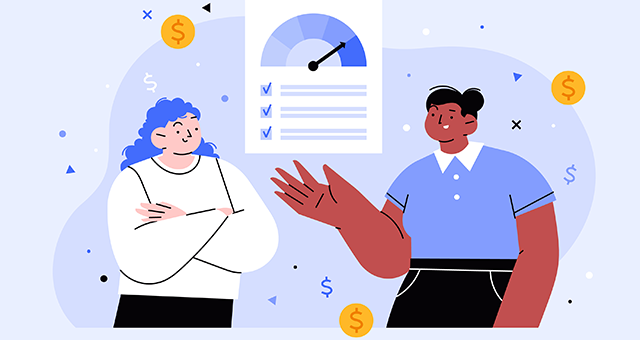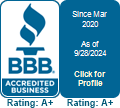
8 Clear Signs Debt Relief Could Be the Solution for You
Debt can be a heavy burden, affecting your finances and mental and emotional well-being. If you’re struggling to keep up with debt payments-you are not alone. Recent statistics paint a sobering picture: according to data from the Federal Reserve, total household debt in the United States surpassed $15 trillion in 2023, with credit card debt alone reaching a staggering $1.1 trillion. In the face of such daunting figures, it’s no wonder that millions are grappling with the question: Is debt relief the lifeline I need to weather this storm?
In this post, we’ll explore eight clear indicators that experts consider when assessing whether debt relief is the solution you need to break free from the cycle of debt and start on the path toward financial stability.
1. Mounting Debt
One of the most obvious signs that you may need debt relief is if you find yourself drowning in unsecured debt. It could be medical bills, student loans, credit card bills, personal loans, or any other type of debt that has become unmanageable. However, if you have secured loans like mortgage, auto, or equity loans, creditors will typically attempt to recover the collateral securing the loan before renegotiating the terms of the debt.
2. Difficulty Making Minimum Payments
If you’re struggling to make even the minimum payments on your debts each month, it is a clear sign that your financial situation is dire. Ignoring these payments can lead to late fees, increased interest rates, and damage your credit score. It can also lead to complete insolvency.
3. Your Debt-To-Income (DTI) Ratio Is High.
If your debt has grown as a result of either excessive spending, accruing interest, or both, then your debt-to-income ratio will be high. It indicates that a sizable portion of your monthly gross income is going towards paying off debt. If your DTI is 40% or higher, it may indicate that your debts are too large to handle on your current income. It’s advisable to act quickly to address the issue to keep debt from impeding your ability to make financial progress.
4. Dependency on Credit to Get By
It is unsustainable to rely on credit to cover ordinary living expenditures or to make ends meet. You should be concerned about your finances if you use credit to pay for necessities like groceries, rent, a mortgage, daycare, transportation, or other critical living expenses. It is time to review your financial plans and decide if you might benefit from receiving professional debt relief aid.
5. You Are Living Paycheck to Paycheck
Financial instability is indicated by a constant battle to make ends meet and little to no space for savings or an emergency fund. Granted, not having insufficient funds for emergencies does not always mean you have a debt issue. Maybe it’s just a case of not planning enough. Nevertheless, the problem is how you will pay for unforeseen costs should they arise (your car breaking down, a plumbing emergency, etc.).
To make ends meet, most Americans use credit cards or payday loans to cover this price. If you don’t have emergency savings, your debts can increase.
Therefore, if you’re continuously living paycheck to paycheck, and your debts are so high that you cannot build an emergency fund, it’s a sign that you need to take care of your financial base and might need some financial assistance.
6. You’re Under Increasing Financial Strain.
The human cost of financial hardship lies behind the quantitative measures. Relationships can be tense, and mental and physical health can negatively impact the stress that comes with debt. You should prioritize your well-being by seeking debt relief assistance if financial worries are causing you to have anxiety, restless nights, or arguments with loved ones.
7. Using Credit to Pay Credit.
One is familiar with the proverb “Borrow from Peter to pay Paul.” It might be time to break the cycle if you’re using a low-interest credit card to pay off the debt of a high-interest credit card without having a clear strategy for when you can pay that credit in full or if you’re refinancing your house or obtaining a consolidated loan to pay off credit. There are methods for paying off debt, and then there’s the Band-Aid approach, which doesn’t address the root of the problem. If this doesn’t fit into a larger plan with a defined end date, it is cause for concern
8. Getting Overdue Notices or Collection Calls
One of the worst things you can do to your credit is to miss payments, as your payment history accounts for most of your credit score. It’s even worse when debt goes to collections. In addition to harming your credit, you’ll have to cope with the frequently coercive methods collectors employ to persuade you to pay, which can be upsetting. It’s a crucial moment that necessitates swift action. Ignoring these indicators can make money problems worse and make recovery difficult. So, it may be the right time to opt for debt assistance.
BOTTOM LINE
If you recognize any of these signs in your financial situation, it is important to act sooner rather than later. Ignoring debt problems will only make them worse over time. Fortunately, several debt relief options are available, including debt consolidation, debt management plans, and bankruptcy as a last resort. Don’t let debt control your life any longer—take the first step toward financial freedom today.
If you have debt problems, contact our experts today for a free consultation. They are always there to understand your financial situation and help you with a debt relief plan to suit your unique needs.


